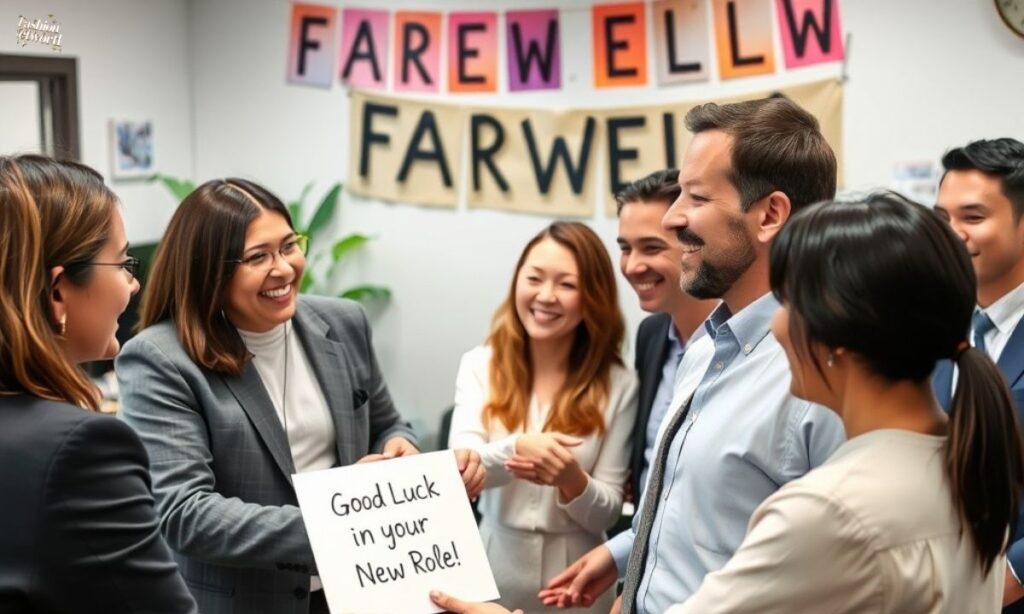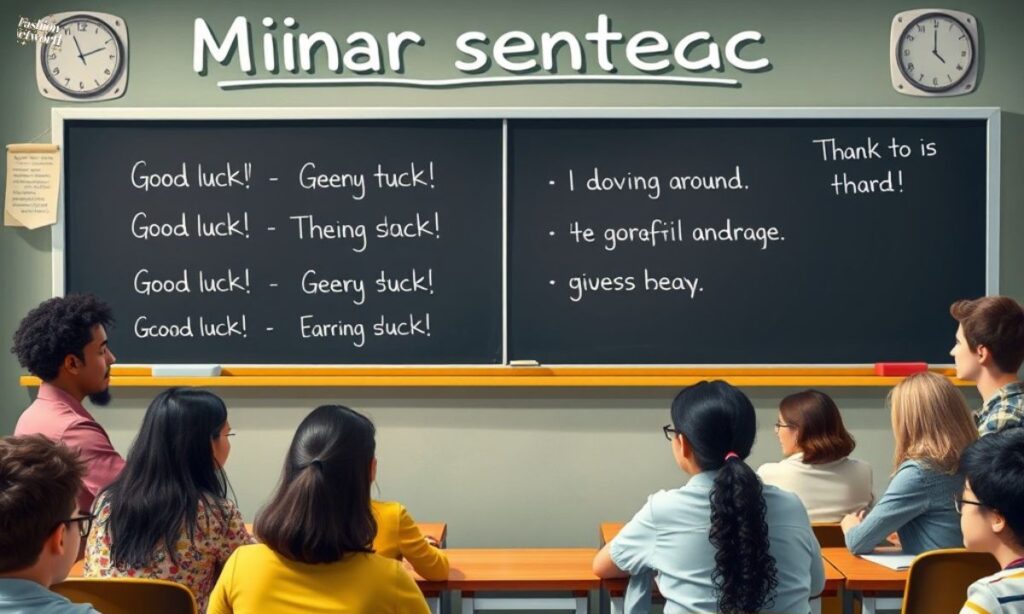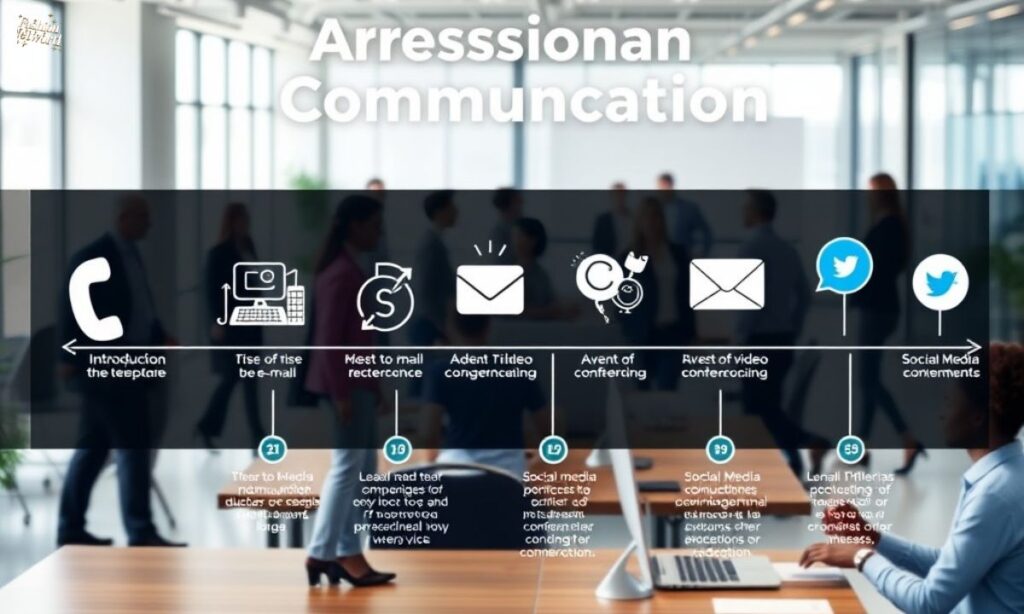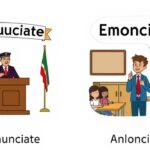Yes, it is correct to say “Good luck with your future endeavors.” This phrase is commonly used to wish someone success in their upcoming plans or projects. It is polite, formal, and works well in professional settings.
it may feel too formal for personal or casual situations. Understanding the context is key to using this phrase appropriately.
Understanding the Phrase “Good Luck with Your Future Endeavors”
“Good luck with your future endeavors” is a polite way to express well-wishes for someone’s future plans. The phrase refers to the upcoming goals, projects, or objectives a person will pursue. It acknowledges that the individual is embarking on a new path, without assuming the specifics of their next steps.
This phrase is a popular choice in professional environments, where it serves as a respectful and formal way to offer encouragement. Whether someone is leaving a job, graduating, or starting a new venture, it conveys positive thoughts for their success and growth.
When and How to Use “Good Luck with Your Future Endeavors” in Professional Communication
“Good luck with your future endeavors” works best in professional settings, particularly when someone is undergoing a major life transition. For instance, it’s appropriate when a colleague is leaving for a new job, a student is graduating, or someone is retiring after a long career.
In these cases, the phrase shows respect and offers support without being overly personal. It’s formal yet warm, making it an excellent choice when you want to show goodwill while maintaining professionalism. The phrase is also adaptable, meaning it can be used in a variety of contexts, such as farewell emails or cards.
The Role of Context in Using the Phrase
Context is a critical factor in determining whether to use the phrase “Good luck with your future endeavors.” In professional settings, it is often a safe and respectful choice when someone is making a significant change in their career or life. If you’re close to the person, a more personal and heartfelt message may be more suitable.
The phrase may feel too distant or formal if you’re simply chatting with a colleague about their career plans. It’s important to consider the nature of your relationship with the person and the context in which you’re offering your well-wishes. Always make sure your tone aligns with the level of formality required for the situation.
Tailoring the Phrase for Different Professional Scenarios

While “Good luck with your future endeavors” works well in general, there are times when a more tailored version is better. For example, if a colleague is changing industries, you might say, “Good luck with your future endeavors in your new tech role.” This adds a personal touch while still maintaining professionalism.
If someone is retiring, you might include more specific wishes, such as, “Good luck with your future endeavors, whether that’s traveling the world or starting a new hobby.” Tailoring the phrase to the individual’s circumstances makes your message feel more thoughtful and personalized.
Alternatives to “Good Luck with Your Future Endeavors”
Sometimes, you may want to switch things up or use a phrase that feels less formal. If “Good luck with your future endeavors” feels too stiff for a particular situation, there are many alternatives that still convey good wishes. Phrases like, “Wishing you all the best in your next chapter” or “Here’s to your continued success” offer the same sentiment but with a more casual tone.
Other alternatives might include, “May your next adventure be even better than this one” or “Excited to see what you’ll achieve next.” These alternatives can work better in more casual settings or when you want to express excitement for the person’s future in a less formal way.
Read This Blog: Chappell Roan Age: Get to Know the Performer!
The Etiquette Behind Wishing Someone “Good Luck with Your Future Endeavors”
When using the phrase “Good luck with your future endeavors,” it’s essential to keep proper etiquette in mind. This phrase is considered formal, so it’s best used in situations where professionalism is key. If you are wishing a colleague well, especially in a farewell setting, this phrase works well because it conveys respect and care.
However, be mindful of overuse. If you’ve worked closely with the individual, a more personal message might be appreciated. It’s important to choose the right tone based on your relationship with the person and the nature of the departure, ensuring your message doesn’t feel too impersonal or distant.
Exploring the Nuances of Minor Sentences in Wishes and Farewells
The phrase “Good luck with your future endeavors” is what linguists call a “minor sentence.” Minor sentences are incomplete sentences that still convey a complete thought. In this case, the full sentence would be something like, “I wish you good luck with your future endeavors,” but the subject (“I wish you”) is implied.
This makes the phrase concise and efficient, which is particularly helpful in professional settings where brevity is valued. By omitting the subject, the phrase feels more streamlined while still expressing well-wishes clearly. It’s an example of how minor sentences can be used effectively in communication.
The Linguistic Concept of Minor Sentences

Minor sentences are often used in informal communication to express a thought or emotion in a more concise way. The phrase “Good luck with your future endeavors” is an example of a minor sentence, where the subject (“I wish you”) is implied rather than stated directly.
This type of sentence structure is common in many languages and is especially useful in social or professional settings where you want to get straight to the point. It allows for a more efficient expression of goodwill without unnecessary elaboration.
Why “Good Luck with Your Future Endeavors” Fits the Pattern
The phrase “Good luck with your future endeavors” fits the pattern of minor sentences because it conveys a complete message without needing a full subject-verb-object structure. The message is clear, direct, and effective, making it ideal for professional communication where brevity and clarity are important.
By using this minor sentence structure, the phrase remains polite and professional while avoiding unnecessary words. It’s a great example of how linguistic efficiency can enhance communication in formal settings, allowing the speaker to convey positive sentiments without over-explaining.
The Power of Positive Communication in the Workplace
Using positive language in the workplace, like saying “Good luck with your future endeavors,” can have a significant impact on team morale and workplace culture. Offering well-wishes helps foster a supportive environment where colleagues feel appreciated and encouraged as they move forward in their careers.
Positive communication not only shows respect for the person departing but also reinforces the values of encouragement and goodwill within a team. Such expressions can inspire others to strive for their own career goals, creating a more motivated and cohesive work environment.
Read This Blog: How Old Is Mike from FGTeeV? Discover His Age Here!
Responding to “Good Luck with Your Future Endeavors”
When someone wishes you “Good luck with your future endeavors,” it’s important to respond graciously. A simple “Thank you, I appreciate that” is always an appropriate and polite response. If you want to elaborate, you could say, “I’m excited for what’s ahead and grateful for the support.”
By acknowledging their kind words, you not only show gratitude but also leave a positive final impression. It’s your opportunity to express appreciation for their well-wishes while reinforcing the positive relationship you shared during your time together.
Cultural Considerations in Using Farewell Phrases
In different cultures, farewell phrases vary, and the phrase “Good luck with your future endeavors” may not always be appropriate. In some cultures, farewell messages may focus more on the continuation of personal relationships, while others may prioritize professional success.
For example, in many Western cultures, the phrase is commonly used to emphasize professional achievement and future success. In some Asian cultures, farewell messages may focus more on health and happiness or express hopes for future connections rather than career-specific wishes.
The Evolution of Professional Communication

The way we communicate in professional settings has evolved, and phrases like “Good luck with your future endeavors” are no longer the only way to express good wishes. While still appropriate in many situations, the trend is moving toward more personalized and less formal communication.
In some workplaces, colleagues might now prefer more casual expressions, such as “Good luck in your new role!” or “Can’t wait to see what you accomplish next!” This shift reflects a more relaxed and informal approach to professional communication, which may feel more natural in certain environments.
Crafting the Perfect Farewell Message
To craft the perfect farewell message, it’s important to keep a few key principles in mind. First, make sure your message is sincere. A heartfelt wish will always have more impact than a generic one. Second, consider the context whether formal or informal and adjust your tone accordingly.
If you’re crafting a message for a colleague or friend leaving for a new opportunity, personalize it by mentioning specific achievements or qualities. A well-crafted farewell message not only expresses your good wishes but also helps leave a positive, lasting impression.
Here’s an example putting it all together:
“Sarah, it’s been amazing working with you for the last five years. Your creativity and dedication have been an inspiration to us all. I’m excited for you as you embark on this new chapter in your career. Good luck with all your future endeavors, and I’m sure you’ll continue to achieve great things!”
The Impact of Farewells on Team Morale
Farewells can have a significant impact on team morale. A positive, supportive farewell not only boosts the person leaving but also helps to maintain a sense of unity among those who remain. It reinforces the idea that personal and professional growth are valued within the workplace.
A thoughtful farewell can also serve as a reminder of the contributions made by the departing individual. This can motivate others to reflect on their own career goals, fostering an environment where everyone feels encouraged to strive for success and personal growth.
Frequently Asked Questions
How do you say good luck in your future endeavors?
You can say, “Good luck with your future endeavors” or tailor it with specifics like, “Wishing you success in your new job.”
Is it correct to say future endeavors?
Yes, “future endeavors” is grammatically correct and refers to upcoming projects or goals someone plans to pursue.
How to use future endeavors in a sentence?
Example: “Good luck with your future endeavors, and I hope to hear about your success soon.”
What is a synonym for good luck in your future endeavors?
Some synonyms include, “Wishing you success in your upcoming projects” or “All the best in your future plans.”
What can I say instead of future endeavors?
You could use phrases like “future plans,” “next chapter,” or “new beginnings.”
Conclusion
In conclusion, saying “Good luck with your future endeavors” is an appropriate and polite way to wish someone well in their future pursuits. It works well in formal professional settings, offering support and respect while maintaining a neutral tone.
Understanding the context and tailoring your message to suit the situation is crucial. By considering the person’s specific circumstances and your relationship with them, you can make your farewell even more meaningful.

Hayyat is a talented content writer and digital marketer with expertise in SEO, social media management, and online marketing. She excels at creating impactful, data-driven content to help businesses connect with their target audience and achieve measurable outcomes.














